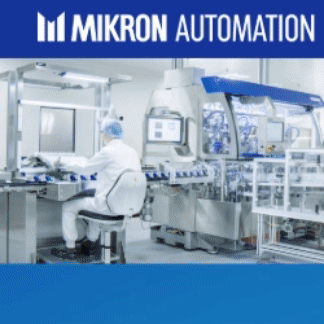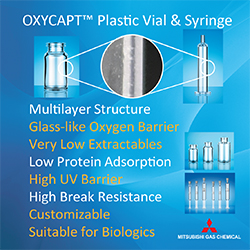Galectin Presents Clinical Data of Combination Immunotherapy With Galectin-3 Inhibitor GR-MD-02
Galectin Therapeutics Inc. and the Providence Cancer Center recently announced the presentation of preclinical and early clinical data from two investigator-initiated Phase I clinical trials of GR-MD-02 used in combination with approved cancer immunotherapies. Ther data was presented at the 9th GTCBio Immunotherapeutics & Immunomonitoring Conference in San Diego, CA, by Dr. William L. Redmond, Providence Cancer Center.
“Preclinical results in mouse models of multiple types of cancers showed important anti-tumor and increased survival effects of combining GR-MD-02 with different types of immune modulators, providing a compelling case for progressing studies into human patients with cancer,” said William L. Redmond, PhD, Associate Member, Laboratory of Cancer Immunotherapy, and Director, Immune Monitoring Laboratory, Earle A. Chiles Research Institute, Providence Cancer Center, Portland, OR. “We are pleased that our translational medicine team is conducting two Phase I clinical trials, which were initiated under the direction of principal investigator Brendan D. Curti, MD, Director of the Providence Biotherapy Program at Providence Cancer Center.”
GR-MD-02 was combined with pembrolizumab (KEYTRUDA) in patients with advanced melanoma, and this study has been expanded to patients with oral/head and neck cancer (OHN) and non small cell lung cancer (NSCLC) (https://clinicaltrials.gov/ct2/show/NCT02575404?term=GR-MD-02&rank=1). Six subjects with advanced melanoma have been enrolled in the lowest dose cohort (2 mg/kg) with no safety concerns related to GR-MD-02. To date, one partial response and one mixed response has been observed. Below is a chest CT scan of the patient with a partial response showing a marked reduction in tumor size at week 12 of therapy, after three doses of combined GR-MD-02 and pembrolizumab.
GR-MD-02 was also combined with ipilimumab (Yervoy) in patients with advanced melanoma (https://clinicaltrials.gov/ct2/show/NCT02117362?term=GR-MD-02&rank=6). Seven subjects treated with the lowest two dose cohorts of GR-MD-02 (1 and 2 mg/kg) have been completed with no safety signals identified due to GR-MD-02. In these low dose initial cohorts, there were no notable changes in the peripheral immune signature. Due to changes in the standard of care for metastatic melanoma (ie, approval of KEYTRUDA), recruitment has been slowed significantly.
“We are encouraged by these early safety results and look forward to further data on the safety and efficacy of GR-MD-02 used in combination with pembrolizumab (KEYTRUDA) in patients with metastatic melanoma, OHN, or NSCLC,” said Dr. Curti. “While we cannot conclude from the one partial response in the pembrolizumab study that the response was related to GR-MD-02, it provides us with a clinically relevant signal to follow as GR-MD-02 doses are escalated. We hope to report additional data in early 2018 when we anticipate a decision on progressing to Phase II. This decision will be based on the response rate of the combination of pembrolizumab with GR-MD-02 as compared to historical response rates to pembrolizumab alone.”
GR-MD-02 is a complex carbohydrate drug that targets galectin-3, a critical protein in the pathogenesis of fatty liver disease and fibrosis. Galectin-3 plays a major role in diseases that involve scarring of organs, including fibrotic disorders of the liver, lung, kidney, heart, and vascular system. The drug binds to galectin proteins and disrupts their function. Preclinical data in animals have shown that GR-MD-02 has robust treatment effects in reversing liver fibrosis and cirrhosis.
Galectin Therapeutics is developing promising carbohydrate-based therapies for the treatment of fibrotic liver disease, skin disease, and cancer based on the company’s unique understanding of galectin proteins, which are key mediators of biologic function. Galectin seeks to leverage extensive scientific and development expertise as well as established relationships with external sources to achieve cost-effective and efficient development. The company is pursuing a development pathway to clinical enhancement and commercialization for its lead compounds in liver fibrosis and cancer. For more information, visit www.galectintherapeutics.com.
Providence Cancer Center, a part of Providence Health & Services, offers the latest in cancer services, including diagnostic, treatment, prevention, education, support, and internationally renowned research. The Robert W. Franz Cancer Research Center in the Earle A. Chiles Research Institute is a world-class research facility located within Providence Cancer Center. The Institute’s main area of investigation is cancer immunotherapy, a specialized field of study focused on triggering the immune system to fight cancer. For more information, visit www.chilesresearch.org.
Total Page Views: 1703













